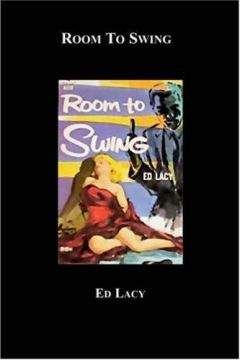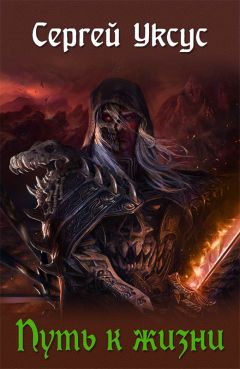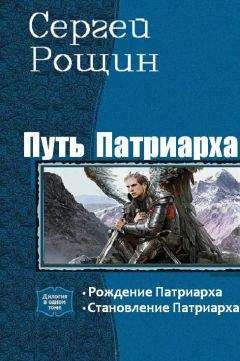Ed Lacy - Room To Swing

Обзор книги Ed Lacy - Room To Swing
Room To Swing
Ed Lacy
This page formatted 2004 Blackmask Online.
http://www.blackmask.com
12345678910
If you're Toussaint Moore, a private investigator from New York City, and a Negro, framed in your own city for a white man's murder, you are going to find it tricky sledding in a small Ohio town, close to the Kentucky border. But the small town was where Moore felt he had to be, to try to find proof for the police that he was innocent of the killing.
Moore's problems had started in New York, when the publicity woman from a television show called You—Detective! came to ask him to shadow a man. The idea of the show was that the viewers were given information about a wanted man, and the first viewer to find the man and report him to the police won a reward. In short, it was a combination adventure and give-away show.
Ed Lacy has written his most unusual story—a very exciting one, and one which handles with exceptional insight a Negro's experiences in a large northern city and a small, bordering-on-the-South town.
“The mass of mankind has not been born with saddles on their backs, nor a favoured few booted and spurred.”
THOMAS JEFFERSON
1
I BROKE par in Bingston. It's a little town of a couple of thousand in southern Ohio and you can take in the entire town in about three minutes. It took me less than a minute to learn all I wanted to know—that I'd made a mistake coming here.
The main drag looks bigger than it should because they get a lot of trade from nearby farms. I parked my car in front of the largest store—a drugstore—and went in. The few people passing stared at me like I'd stepped out of a flying saucer. Okay, even though my Jaguar is an eight-year-old job I picked up for six hundred bucks, any foreign heap attracts attention. A fact which was worrying me nuts at the moment; attention was the last thing I needed.
I was a positive sensation inside the store—everything stopped dead still. The fat soda jerk stared at me with disbelief, a guy having breakfast at the counter spun around, toast in mouth, and made big eyes, the druggist was getting some mail from an old Negro postman and they both looked startled. It was a well-stocked place, more like a general store. I saw the phone booths and walked over. The Bingston phone book is about the size and thickness of a Broadway theater program. There wasn't any May Russell listed.
Figuring there had to be more to the phone book than this booklet, I started toward the soda jerk to ask. He reacted like a ham actor, his round face showing horror, then a fat grin of relief as he glanced at the door. I turned to see a cop coming at me, coming fast. Some small-town cops sport musical-comedy uniforms. This one was a stocky, middle-aged joker in high-polished black boots, gray breeches with a wide purple stripe down the sides, leather wind-breaker with the largest badge I ever saw, and a kind of cowboy hat. There wasn't any doubt as to why he was coming; his gun was loose in its holster and he was actually holding a billy in his right hand. I didn't see how they could be looking for me so soon, but my stomach began turning somersaults. I got set; if I could flatten this cop and make the door I was safe.
The mailman was suddenly in my way, both hands on my right fist as he whispered, “Relax, son.”
“Get out of my face!” I said, pulling my hand away. The cop was on top of us. The mailman nodded at him and said, “Hello, Mr. Williams.”
“Hello, Sam. Anything for me?”
“I left a few letters at your office,” the postman said, still blocking me.
The cop asked me, “Stranger in town, boy?”
“Yeah.” I'd been called boy more times in the last half a dozen hours than in my whole life.
“That's what I thought. I'd better explain a few things to you.”
“What things?” I said, my eyes on his billy hand. I pushed the mailman out of the way but the damn fool stepped right back in front of me.
“What you doing here, boy?”
“Looking in the phone book. That against the law?”
“Nope. I thought maybe you was thinking of eating in here. Being new, maybe you don't know it ain't the custom for colored to eat in here.”
I got a little mad and I relaxed, almost sagged with relief. I was still in the clear. The crazy thing that stuck in my mind was that this cop had a kind face, and if anything, he was talking very gently —with the billy ready for action. I told him, “I wasn't planning on eating the phone book.”
The cop grinned, his eyes taking in my Fifth Avenue clothes—and he'd sure seen the Jaguar outside. Then his eyes went over my broken nose and the fact I had about a half a foot and at least sixty pounds on him, and he looked a trifle unhappy again. “Understand, I don't want no trouble. Being you're a new boy around here, I want to straighten you out.”
“Then we're straight. That all there is to the phone book?” I nodded toward the booths.
“That's the phone book. Who you looking for?”
“Must have the wrong town. I didn't see the party listed,” I said, walking around the mailman, heading for the door.
The postman said, “I know about everybody in Bingston,” and his brown face said plainly, “As one Negro to another, let me help you.”
“That's okay, forget it.” I walked outside and looked up and down the main street, saw it all without straining my neck. A movie, two small hotels, several supermarkets, a couple dozen stores, and maybe another “business” street crossing this one about a block down.
The town letter carrier was standing beside me. He said, “Guess you must be from up North. Bingston isn't a mean town for coloured, just a little old-fashioned. No sense getting into trouble, son.”
“Skip the race-relations lecture, Uncle. You know a May Russell?”
A darker anger flooded his brown face at “Uncle.” He started to walk away, saw the cop watching us from the store door. He turned back and told me, “Look, we don't want trouble in this town. I've lived here all my life and our people have made progress in Bingston.”
“You going to straighten me out, too? I stop to look at a phone booth and I'm trouble. How far south is Ohio?”
“Asking for May Russell will start real trouble. She isn't for coloured men.”
“What's that mean?”
“She's a... a... scarlet lady!” he whispered.
I broke down and laughed. I hadn't heard that phrase since I read The Scarlet Letter in high-school and was disappointed that it wasn't hot stuff. The mailman laughed a little, showing crooked teeth. “Got me wrong, Pops. There a hotel where I can put up for a couple of days?”
“No hotel here, for coloured. We only have thirty-nine Negro families in Bingston.”
“Hell, doesn't Ohio have a civil-rights law, or any—?”
“We're right on the border of Kentucky, so—” he waved a stubby brown hand southward—“we don't get many out-of-town coloured persons. Mrs. Kelly takes in roomers but she's full up. How long do you plan on staying?”
“Couple days. I'm a... a musician. I'm on my way up to Chicago; thought this May Russell was the friend of a guy I knew.”
“I knew you were theater folk. What's the name of this friend you're looking for? Knowing everybody here is my business.”
“An army buddy. Just called him Joe.... Must have the wrong town,” I said, lying wildly. “Tell you the truth, Pops, I've been on the road a lot and have a slight cold. I want to rest up for a few days.”
“You certainly don't look sick. I'm Sam Davis. I suppose I can put you up at my house.”
“Thanks. I'm Harry Jones,” I said, picking a clever name out of the air.
As we shook hands he said, “Will two dollars a night and a dollar for meals be all right?”
“Perfect.”
“I'll phone Mary, my wife, that you're coming. You turn left on Elm, at the traffic light down the street. Then you keep walking for about five blocks and you'll see a brick house with wooden ducks on the front lawn. Wire fence. That's mine. You'll be in the coloured section. Ask anybody for Sam Davis' house. Not too much of a walk.”
“I'm on rubber,” I said, nodding at the Jaguar. He was impressed, asked, “Can you do a hundred in that?”
“With the gas pedal off the floor. Thanks for the room. I'll go right out and grab some sleep. Think it would cause a riot if I buy the local paper first?”
“Now, now, Mr. Jones, Bingston isn't that bad. The News don't come out till noon, unless you want yesterday's copy.”
“Yesterday's will do. Like to read myself to sleep.”
“You can buy one at the Smoke Shop across the street. I'll phone Mary that you're coming out.”
I got the paper and, as I slid behind the wheel, the cop walked over and asked, chummy-like, “This a European auto?”
He was really friendly, yet if I wanted to get a cup of coffee in the drugstore he would bash my head in. “English.”
“Pretty expensive, I bet?”
“You win the bet,” I said, starting the Jag.
“Any better than our cars?”
“No,” I said, backing out, I made the turn at the traffic light and pulled over to the curb. Elm Street was a lot of big houses with even bigger lawns. The paper had used the wire story from New York about a Richard Tutt being found beaten to death in his room, and that the police were looking for “a” Negro. Fingerprints had revealed Tutt's real name to be Robert Thomas and that he was a wanted criminal. At the bottom there were a few puff paragraphs about Thomas having been born in Bingston and wanted by the local police for the last six years. There wasn't anything I didn't know already, so I put the paper down and drove on.
The postman's house was better than I expected: old, but solidly built. In fact most of the houses in this “Negro” section looked pretty good. There was a driveway and a garage in the back. I parked in the driveway, in the rear of the house, locked the car. My license plates were muddy enough. A plump woman with a warm brown face opened the door, said, “You must be Mr. Jones. Come in. I've hardly had time to straighten up the guest room. Haven't used it since my cousin Allen, from Dayton, was here. Take me a minute to dust and—”
“I'm pooped,” I said, suddenly aching with tiredness. “I'd like to go to bed now.”
“You must think I'm a terrible housekeeper.”
“I don't. I'm too tired to think anything. Can I go to my room now?”
“As you wish. You do look tired. I'll get you a towel. Where are your bags?”
“In the car,” I lied. “I'll get them later.”
I followed her upstairs to a large room filled with old, heavy furniture. The bed looked wonderful. She gave me a towel, said the bathroom was down the hall, and kept chattering about the dust and things. The room looked neat as a pin to me. I stopped her mouth by hanging my Harris-tweed overcoat in the large closet. She stood in the doorway, said, “Mr. Davis told you two dollars a night and—”
“Yeah.” I gave her a five-dollar bill.
“Well, he was wrong about the meals. Food's gone up. It will be two dollars a day instead of one for meals.”
“Okay.”
“I'll give you your change later.” She hesitated, pulled at her apron with the money hand. “I hope you're not a drinking man, Mr. Jones.”
“I'm only a tired man. Good day, Mrs. Davis.” When she left I hung up my coat, locked the door, hid my wallet and badge under the mattress, the data on Thomas under the rug. Taking off my nylon shirt and underwear, I made sure the hallway was empty and sprinted to the bathroom. It was the largest I'd ever seen. I took a fast shower, washing my shirt and stuff, toweled myself dry, and made another nude sprint down the hallway. I hung up the shirt and underwear carefully, pulled the shades down, and jumped into bed.
I wanted to think; I had to think if I wanted to get out of this mess. But I hadn't slept in two days and the bed was soft as a good dream. When I jerked myself awake the pale green hands on my wrist watch said it was ten o'clock. I'd pounded my ear for a dozen hours. I felt great—and mad as hell at wasting all that time.
I pulled up the shades; it was very dark outside, the dim street lights blocks apart. My wash was dry and I got my pipe working as I dressed. It wouldn't be safe to hang around this burg for more than a day or two, if it was safe at all. Normally it would be a cinch to shake a little town like Bingston clean in two days, only it was south and I had dark skin. I'd stand out and somebody would peg me as “the" Negro being hunted by the New York police.
I was too much of a stranger. If I only had a contact, somebody in town to do the more obvious asking around. Old super sleuth me, what asking? I didn't have one idea as to what I was looking for. A hick town could be either a wonderful hideout or a trap.
Taking out the TV data on Bob Thomas I read through it for the tenth time. I felt a little better, still had a hunch the killer had to come from Bingston. Unless it was a freak job, one that didn't fit any pattern. If it was a crazy killing, then I might as well go back and put it down in the electric chair.
The house was so quiet I knew the old couple were asleep. And I was hungry enough to see what the refrigerator held. The TV was on, giving the parlor an unreal glow. There was a young girl watching the screen. I could see her face clearly, a lean dark face, skin as dark as mine, hair piled atop her head au naturel. When she saw me she stood up and turned on a lamp. She was wearing a simple knitted gray suit that clung to her tall, strong figure. In the light she looked older than I thought, about twenty-seven. Her nose was short, her eyes large and deep, and she had full, heavy lips.
“Mr. Jones? I'm Frances Davis. Mom said you might want supper. Do you?”
The voice was low and sullen, maybe even bitter. “Where is everybody?”
“Asleep. It's after ten—late for us.”
“Sorry I kept you up. I'll go out and grab a bite.”
“Where? There ain't any 'coloured' restaurants here. You didn't keep me up; I'm a TV bug. If you want to eat follow me into the kitchen.”
“Doesn't seem much worth getting up for at any time in Bingston,” I said as she walked by me toward the kitchen. She was about six feet tall, and in flat shoes.




